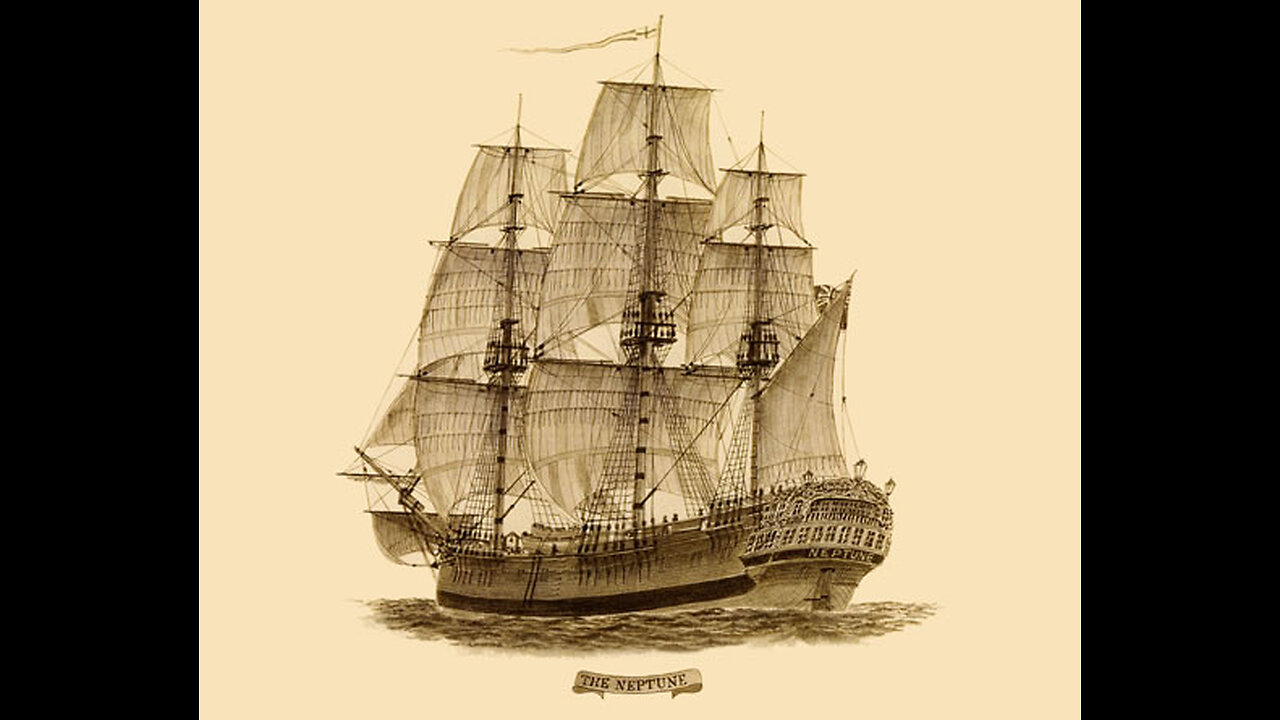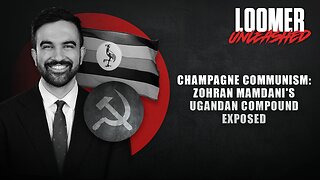Premium Only Content

"Paul Clifford", Chapter 36, by Edward Bulwer-Lytton
Subtle, Surly,-Mammon, Dol,
Hot Ananias, Dapper, Dragger,-all
With whom I traded.
The Alchemist.
----
strepitumque Romae: and the roar of Rome
cit: short for citizen
And here we get our second reference to the French Revolutionary period. Indeed, it tends to suggest the main bulk of the story happened early in the revolutionary period, probably the early side of the 1790s.
Botany Bay is in Australia, so we see here the punishment of transportation is confirmed in this time period to be to Australia, as I suggested in a previous chapter.
Jack Ketch was an English executioner in the later half of the 17th century. Rather a gruesome occupation, it would be curious to know how Mac Grawler got himself into that line of work... And apparently Ketch performed two particular executions, of Lord William Russell and of James Scott, 1st Duke of Monmouth, that were so horrific that they angered the general public for their barbarity.
The comment about shoes being imperfectly polished comes with a footnote from the author: "See Captain Hall's late work on America".
Drawcansir: a fictional character in George Villiers, 2nd Duke of Buckingham's farce, "The Rehearsal". He kills every one of the combatants, "sparing neither friend nor foe."
The picture used is a drawing of the "Neptune", a penal transportation ship. Obviously with two of the characters suffering the punishment of transportation, this works for this chapter on that grounds, but could also be seen as sailing off into the sunset for a happily ever after, which both Clifford and Ned both seem to get in the end.
To follow along: https://www.gutenberg.org/files/7735/7735-h/7735-h.htm#link2HCH0036
I kind of feel like what happens to Clifford for most of this story, except for the ending here, is what would have happened to Jean Valjean had Jean not run into the Bishop to redeem him early on. But our author here decides to redeem Clifford after all, just outside the scope of the main story. And of course there's the age difference, and corresponding to that, no love interest for Valjean, who instead gains a father interest in Cosette. But as Clifford struggles with the worthiness of his love for Lucy, so Valjean also struggles with his worthiness as a father to Cosette, so there is still a sort of parallel there. Oh, and both stories overlap with the French Revolutionary period, although Les Miserables starts at the very end of the Napoleonic period, and the climax of the story occurs during the failed 1832 revolution. Anyways, lots of interesting parallels that could be drawn between these two stories. As it happens, Paul Clifford came first, in 1830, while Les Miserables was 1862. So for any student looking for a comparative literature essay topic, there you go :)
-
 LIVE
LIVE
TimcastIRL
1 hour agoSouth Park Goes FULL CHARLIE KIRK, Latest Episode ROASTS Trump Again | Timcast IRL
24,876 watching -
 LIVE
LIVE
Laura Loomer
1 hour agoEP135: Champagne Communism: Zohran Mamdani's Ugandan Compound EXPOSED
509 watching -
 LIVE
LIVE
SpartakusLIVE
1 hour agoThe Return of the KING of Content
425 watching -
 10:05
10:05
MattMorseTV
5 hours ago $0.85 earnedHe actually did it...
4.59K9 -
 1:17:18
1:17:18
Glenn Greenwald
1 day agoWhat are CBS News' Billionaire Heirs Doing with Bari Weiss? With Ryan Grim on the Funding Behind It; Europe Capitulates to Trump Again | SYSTEM UPDATE #494
68.4K29 -
 LIVE
LIVE
megimu32
1 hour agoOTS: Movie Tie-In Games + Remakes: Let’s Play Memory Lane
67 watching -

RiftTV
3 hours agoCNN Calls Black NY Shooter WHITE, Cincinnati FATIGUE | The Rift | Guest: Braeden Sorbo, 2Protects1
11.8K9 -
 LIVE
LIVE
LumpyPotatoX2
4 hours agoKilling Floor 3: Rampage & Chaos - #RumbleGaming
56 watching -
 LIVE
LIVE
BrancoFXDC
4 hours agoPlaying Ranked Warzone - Pursuit of Diamond Rank
87 watching -
 1:11:41
1:11:41
Omar Elattar
4 hours agoThe Brain Experts: "Your Overthinking Problem Has A Physical Solution & We Can Show You!"
771